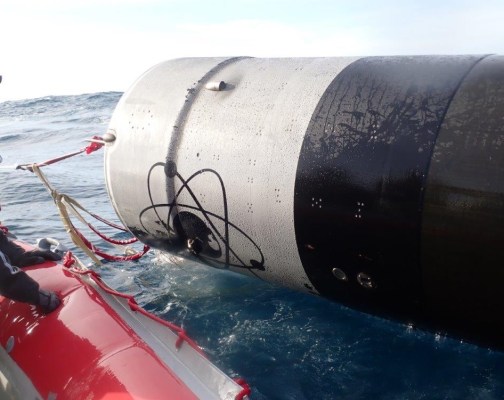
Rocket Lab may have experienced mission failure and total payload loss during the company’s 20th planned mission on May 15, but it wasn’t all bad news, the company said in an update Monday.
Importantly, the Electron rocket’s first stage – which contain nine Rutherford engines – performed as designed and did not contribute to the flight failure. Rocket Lab further said the first stage completed a successful ocean splashdown using a parachute and that the company was able to retrieve it, and bring it back to its production complex.
Rocket Lab was also testing a redesigned heat shield on this mission made out of stainless steel, rather than aluminum, and that also seemed to function well. Testing these reusability system elements was a secondary objective here, since the primary goal is always to deliver the payloads of paying customers, but ultimately reusability could be absolutely crucial to the company’s long-term business.
“The new heat shield debuted in this flight protected the stage from the intense heat and forces experienced while re-entering Earth’s atmosphere and the program took yet another major advancement towards reusability of the rocket,” the company said Monday.
This is great news for Rocket Lab’s reusability program, as the first stage and engines can be examined and evaluated for further reflight trials on future missions. The company still intends on conducting its third recovery mission later this year. Rocket Lab said it was leading flight review of the May 15 mission failure with the support of the Federal Aviation Administration and anticipates the full review to be complete in the coming weeks.






















